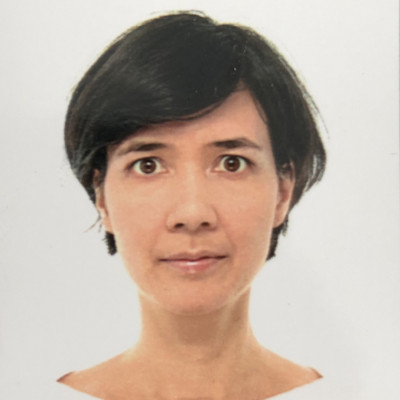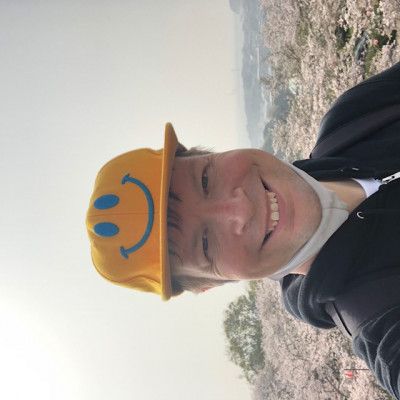Sessions / Poster Presentation
For describing a work in progress, a theory in development, or a new process or idea, although submissions beyond this scope are also welcome.
Active learning strategies for hybrid online lessons #1391
Learning strategies and lesson delivery methods are changing rapidly and with an increase in remote learning, many practitioners have found themselves conducting hybrid lessons, where some of their students are face to face and others are online. Needless to say, finding effective ways to achieve course objectives while maintaining student motivation and participation can be quite challenging. This poster presents various active learning techniques which have the potential to enhance hybrid learning environments, leading to increased engagement and improved student outcomes.
Teaching Professional and Technical Communication with New Media Design: Towards Linguistic Entrepreneurship in a COVID-2019 Landscape #1394
The COVID-19 landscape provides a unique opportunity for computer science (CS) majors to learn about the redefined impact of disruptive technologies in the market that will likely influence how we conduct our businesses in years to come, and in turn, shape our workplace and residential environment. However, regular CS courses are expectedly not always focused on such global understanding, and therefore not providing much opportunity for students to develop an overall macro understanding of how serious realignment is happening in the technology market with the advent of COVID-19. This is where the language courses based on digital entrepreneurial storytelling and focused on professional and technical communication add value for CS majors. Digital storytelling as a business model is getting more established. This presentation will showcase the pedagogical value and curriculum design of an elective soft-hard CLIL based professional and technical communication course on entrepreneurship and innovation using assignments based on digital storytelling. The course content used topics on contact tracing apps, virtual therapy, and mental health apps, 3D printing, RFID technology, the shifting focus of different industries, video calling/streaming, Stanford’s design for extreme affordability program, drones to monitor social distancing, telehealth/telemedicine, use of drones, AI and big data to fight COVID-19. The presentation will discuss results of student performance with such content in a language classroom, and how to promote entrepreneurial thinking with the use of different information design exercises using SWOT analysis online templates, promotional video design rubrics, and sentiment analysis. The presentation will further highlight student perceptions about such professional and technical communications assignments in the course.
To Zoom or not to Zoom? Privacy concerns and students’ attitude towards online learning #1400
This presentation will attempt to offer insight into how students’ reacted towards greater use of videoconferencing software as the primary conduit of their language learning courses at the university level. In particular it will present data and offer analysis into students’ attitude towards how their privacy was impacted by the switch from the physical to the digital classroom. In order to facilitate learning under the COVID-19 pandemic, instructors had to speedily adapt to a ‘new normal’ of intense videoconferencing online language learning. Yet, did the decision by many educational institutions to transform to an online learning format have unintended consequences in relation to learners’ privacy? More importantly, in the future what lessons can be learnt, and what new parameters need to be set, to ensure that learners remain confident in an online learning environment setting?
The main research data included in this presentation was carried out at a national university in Japan. With additional research collected from a national university in Ukraine. 353 students completed surveys twice-a-semester between April 2020 and March 2021. The courses included in the study were compulsory English language classes for first and second year university students. The videoconferencing software used was Zoom and Microsoft Teams. The findings indicate that 32% of students expressed some privacy concerns, but accepted that compromises had to be made during the Coronavirus Pandemic. However, crucially this number rose to 71% if videoconferencing language classes were to remain a permanent part of their language learning process.
Active stakeholder perspectives on the internal- and external-alignment of a first year EGAP writing course #1401
This practical, ongoing research project represents an initial inquiry into an intact required first-year once-a-week English-Mediated Instruction (EMI) English for General Academic Purposes writing (EGAP-W) course, focusing on the perspectives of the active stakeholders (i.e., students and teachers) on the perceived degree of constructive alignment (CA) at both course and curriculum level. As CA incorporates a range of rugged-yet-reliable educational theories, chief among them the learning context and processes, student approaches to learning, and curriculum development, this project investigates the representations of the educational system in which the stakeholders are operating. A convergent mixed-methods approach incorporated both quantitative (n = 397) and quantitative (n = 5) data from enrolled student-participants as well as qualitative data from semi-structured interviews with EGAP-W instructors (n = 6) in order to gain deeper insight into stakeholders’ perspectives. Initial results suggest that while course-internal alignment is perceived by the stakeholders as being relatively high, with students acknowledging the relevance of taught skills, course-external alignment is perceived as weak. In addition, secondary implications of note for both curriculum development and EMI were revealed. It is hoped that results and procedures from this study could provide a basis for instructor-stakeholders to help create more effective course-external connections between courses in extant curriculums, and to better align their course systems to the needs of their student-stakeholders as technology continues to influence educational institutions across society.
The isiZulu hospital web-based learning project #1426
Remote online teaching has been a game-changer in the language teaching spectrum. In the case of the teaching and learning of isiZulu (one of the official language in South Africa), remote online teaching has created an opportunity to explore web-based learning (WBL) with medical students to improve their clinical communication skills. The problem addressed in this project is the need to enhance isiZulu clinical communication. The need for further integration of isiZulu within the 6-year health sciences curriculum is essential. Creating an isiZulu language website paired with the Skills Lab content offers a practical and economical solution, especially with no face-to-face teaching during the clinical years and building on the year-long module completed in MBCHB (Bachelor of Medicine and Bachelor of Surgery) Year 1 programme. This poster presentation describes a work-in-progress, web-based project undertaken at the Nelson R Mandela School of Medicine, University of KwaZulu-Natal (UKZN). This project aims to help students sustain their isiZulu learning and foster autonomous learning throughout the programme. Through WBL, students can interact with the content irrespective of their location and schedule. The content can be perpetually updated and designed interactively. It is essential to provide students with authentic and relevant learning resources based on principled second language (L2) learning theories to enhance their isiZulu clinical communication skills. Using WBL, rich, authentic input such as simulations and game-based environments can also be explored. Given the limited research conducted in TBLT and CALL in isiZulu, this study significantly contributes to the existing TBLT-CALL scholarship.
EFL students’ perceptions and preferences of online learning: a Japanese higher education context #1475
This paper reports on research that explored English as Foreign Language (EFL) learners’ perceptions and preferences of online learning during the change to emergency remote teaching. Quantitative and qualitative data were collected from EFL learners of six courses in one private university in Tokyo, Japan through online surveys. The presentation will introduce the research context, methods for data collection and discuss the analysis of the results. Findings indicated that the majority of students in this context had sufficient access to WiFi and computers however, WiFi connectivity mediated their communication. Also, although interactive activities were overwhelmingly preferred by students, online collaborative activities were limited in most courses with many conducting video streaming and teacher fronted style lessons. Pedagogical implications and suggestions for future research are discussed.
The International Virtual Exchange Project: Online opportunities for English communication and cultural acclimatization #1479
The Covid-19 pandemic has forced many educational institutions online, creating a greater need for online communication tools to aid the learning experience. Beginning in 2015, the International Virtual Exchange (IVE), spanning almost 20,000 students and 400 teachers from 20 countries, can fulfil this requirement. The IVE provides an international setting for students to communicate using English as the lingua franca and thus utilizing what they have learned in other language learning settings. Participants also become more culturally acclimatized through real interactions with the participants from other cultures. This poster presentation will show how easy it is for students to participate in the IVE and how they can be monitored and assessed by their teachers through the customized Moodle forum. The presenter will also display other devices (PC, tablet, smartphone) to show the student view and operability. Results showing improvement in students' understanding of their own culture and appreciation of other cultures will be outlined. The IVEProject, sponsored by a Japanese government grant-in-aid for scientific research, is free of charge to participants and easy to join. Finally, information on how teachers and their classes and institution can participate in the future will be detailed.
Teaching and entertaining with online educational comics #1486
In 2020, in order to give university students encouragement during a difficult time while also providing free educational content, a teacher at a university created a series of daily comics that introduced study tips, vocabulary, educational ideas, or just entertainment value. The goal of the series of strips evolved over time, as did the format, as various kinds of comics were explored, such as "yonkoma" comics, single-panel comics, and later a series with a recurring main character. The strips were not used for a specific class, but were available for students to access free on the school's social media, often in both English and often in Japanese. This presentation will explore the design decisions used for the art, the jokes, the educational content, and how those concepts evolved over the course of the year, as well as how text, questions, and tags were used to support the goals of the project. The comics remain free to use online, and the presentation will also explore further directions for the creation of online comics for education.








